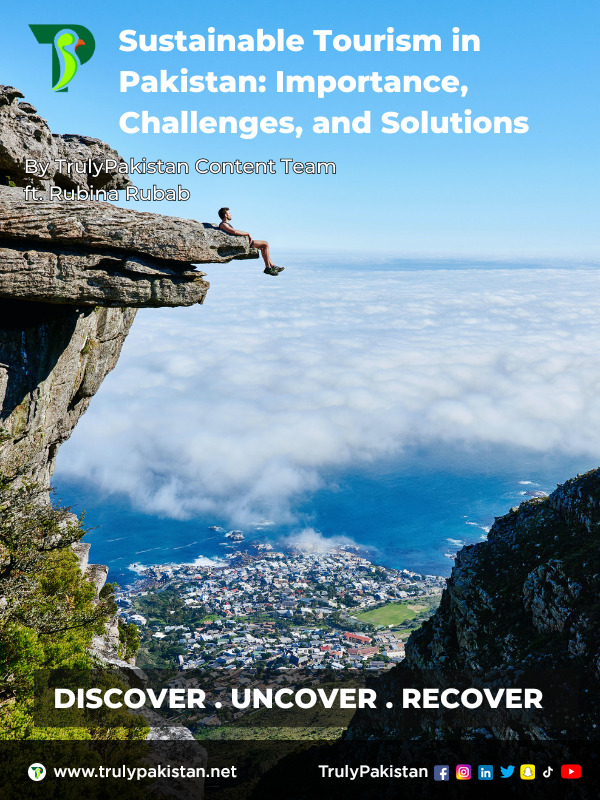Importance of Sustainable Tourism in Pakistan:
Economic Growth: Sustainable tourism can boost economic growth by generating revenue from accommodations, restaurants, transportation, and local businesses. This income contributes to job creation and poverty reduction, particularly in remote areas.
Preservation of Natural Beauty: Tion of these natural wonders by encouraging responsible travel practices and supporting eco-friendly initiatives. Pakistan is home to stunning landscapes, from the Himalayas to coastal regions. Sustainable tourism promotes conserves.
Cultural Preservation: Tourism can help preserve Pakistan’s rich cultural heritage. Visitors often seek out historical sites, festivals, and local crafts, incentivizing their preservation and promotion.
Community Empowerment: Sustainable tourism initiatives, such as community-based tourism, empower local communities economically. Involving them in tourism activities can enhance their livelihoods and reduce dependence on unsustainable practices.
Promotion of Local Arts and Crafts: Tourists’ interest in local arts and crafts creates opportunities for artisans and small businesses, preserving traditional craftsmanship.
Challenges to Sustainable Tourism in Pakistan:
Security Concerns: Perceptions of security issues can deter potential tourists. Addressing security concerns and improving the safety of tourists is paramount.
Infrastructure and Accessibility: Inadequate infrastructure, including roads, airports, and accommodations, can limit the development of sustainable tourism.
Environmental Impact: Irresponsible tourism practices, such as littering and pollution, can harm fragile ecosystems and biodiversity.
Lack of Awareness: Both tourists and local communities may lack awareness of sustainable practices. Educating stakeholders is crucial.
Seasonality: Pakistan’s tourism often experiences seasonal fluctuations, with some areas inaccessible during certain times of the year. This can lead to over-tourism in specific regions.
Solutions for Sustainable Tourism in Pakistan:
Security Measures: The government should prioritize security for tourists by enhancing law enforcement, promoting travel advisories, and implementing safety measures.
Infrastructure Development: Invest in infrastructure improvement, including better roads, airports, and accommodations, to enhance accessibility and convenience for tourists.
Promote Responsible Tourism: Launch awareness campaigns to educate both tourists and locals about sustainable and responsible tourism practices, including waste reduction and conservation efforts.
Diversify Tourism Offerings: Encourage tourists to explore lesser-known regions to reduce pressure on popular destinations and distribute economic benefits more evenly.
Community Involvement: Engage local communities in tourism planning and development, ensuring they benefit directly from the industry and are motivated to protect their cultural and natural assets.
Preserve Cultural Heritage: Promote the preservation and restoration of historical and cultural sites through funding, partnerships, and incentives.
Environmental Conservation: Implement strict environmental regulations, encourage sustainable transportation options, and promote eco-friendly accommodations.
Seasonal Management: Encourage tourists to visit different regions throughout the year, reducing the impact of over-tourism in peak seasons.
In conclusion, sustainable tourism in Pakistan is vital for economic growth, cultural preservation, and environmental conservation. To overcome challenges and realize the full potential of sustainable tourism, Pakistan must invest in infrastructure, prioritize security, promote responsible practices, and engage local communities in the process. With these efforts, Pakistan can unlock the benefits of sustainable tourism while protecting its natural and cultural treasures for generations to come.

